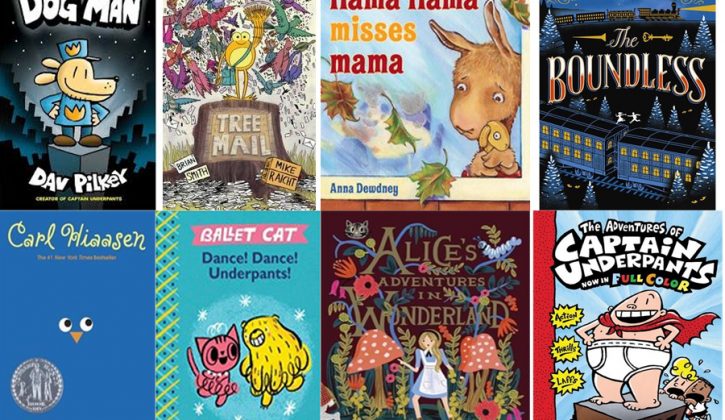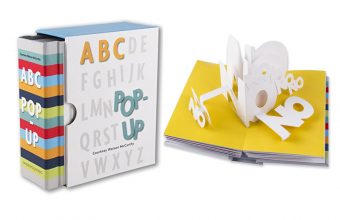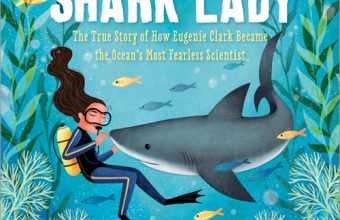As a parent in the summer, I’m all about forgetting the rules and schedules. I’m perfectly okay with letting my kids live on cereal and popsicles all day and saying yes when they want to stay up late.
But there’s also a part of me that feels this slight responsibility for their well-being, which includes their learning. I don’t really want to worry about reading and doing math and preparing them for the next school year right now. But I also know it’s important for kids of all ages to keep up with reading over the summer months.
So that’s why I chatted with an expert to get his take on just how important it is for kids to be reading over the summer and how many books should be on their list.
Dr. Steve Truch is a Canadian educational psychologist who specializes in literacy and learning disabilities. He’s also a Grandpa to an 11-year-old kid named North. But more on how North comes into this later.
The phenomenon of summer learning loss
Summer learning loss refers to the loss of skills or knowledge in kids over the holidays – and it truly is a phenomenon according to Dr. Truch.
Researchers started looking into it in 1978 in the U.S. and in 2010, a study was conducted in Ontario. Out of the 2000 students studied, 46% had some form of learning loss during the summer. Basically, what researchers are finding is that over the summer, kids are losing approximately two months of skills and knowledge. And when they get back to school, it can take up to two months for them to get back to where they started. (It’s an even higher loss in math).
The studies showed that some of these results were connected to things like parent education and income level, so there are some socio-economic factors at play. But overall, as parents, we should take reading and math, and learning over the summer in general, seriously.
What Parents Can Do & How Much Reading is Necessary
Setting aside time each day to do some math and to read with your kids is the key. Here’s how much:
- Try to get in 10 minutes of math skills a day.
- Aim for a mix of reading to your child and having them read out loud to you (or silently) for 30 minutes a day.
- However, if your child is already a good reader and they like it, they can easily do more than that because they won’t be resistant.
If you’ve got a kid who may not be super strong in math or reading, some structured activities may help.
One online resource to help you get started is ixl.com. They’ve got activities by grade level in math, science, language, and reading skills. There are some fees associated with accessing all of the activities, but it’s definitely a good place to start to look for resources. You can also try out your local library to see what kind of programs they offer.
A Word of Caution About Apps
Dr. Truch did recommend against putting a lot of focus on apps (although, I know how much we all love iPads and apps. As a mom of three little kids, I really, truly do.) He said that apps are generally fine if your kid isn’t having any issues with learning – but if they are – you may want to take a different approach.
Why? Well, you want to be careful with some of them because research has shown that tapping on a screen is very different than working with paper and pencil. When we teach kids anything, we’re wiring their brains to work a certain way – and when you’re tapping on a screen, you’re not producing the motor input that your brain needs in order to remember letters (for example), because it’s being produced for you.
So, they have a place – but we shouldn’t put all of our focus on them. I personally went out and bought a few workbooks at our local bookstore because, for some strange reason, my kids think they’re a treat and they enjoy working through them every once in a while.
At What Age Should You Start?
All kids experience some kind of learning loss, so it helps to work on this no matter how old your child is. However, kindergarten-aged kids are just getting prepared for school, so it’s more about learning everything from social skills to new schedules.
The real key is the quality time you spend with your child. I loved what Dr. Truch had to say about this. He suggests that quality time together is the most beneficial way for them to learn. There’s no specific number of books they need to be reading – and while reading challenges are fun and great – it’s not about checking off 100 books. Fluent readers will get through a lot no problem. But if your child needs an extra push, they’ll get the most benefit from the time you spend together going over the story together, talking about the words, asking questions about what’s going to happen next and talking about the pictures.
To help you find some books to tackle over the summer, Dr. Truch’s grandson, North, developed a reading list by age. We think it’s pretty cute – and spot on.
Book Recommendations by North (an avid reader)
Hoot by Carl Hiassen (ages 12 to young adult)
Dance, Dance, Underpants by Bob Shea. Ages 4 and up can listen to this one. Young readers to about grade 3 will enjoy it.
Diary of a Wimpy Kid by Jeff Kinney. Ages 8 to 12.
Tree Mail by Brian Smith and Mike Reicht. Ages 8 to 10.
The Boundless by Kenneth Oppel. Ages 9 to 14.
Dog Man by Dave Pilkey. Ages 7 to 9. This book is by the author of the Captain Underpants series.
The Adventures of Captain Underpants by Dave Pilkey. Ages 7 to 9. Hilarious series with lots of phonetic spelling throughout.
Timmy Failure (Mistakes Were Made) by Stephan Pastis. Ages 7 to 10.
Alice in Wonderland by Lewis Carroll. Ages 10 through adult and Through the Looking Glass by the same author.
The Invention of Hugo Cabret by Brian Selznick. Ages 10 through adult. Told mainly in illustrations.
Llama Llama Misses Mama by Anna Dewdney. Very appropriate to read to a 5-year-old starting Kindergarten or a 6-year-old starting the first day of school.
Zen Ties by John J. Muth. Ages 7 to 10. A story of compassion and friendship.
Dr. Truch works with children, adolescents and adults of all ages to diagnose and treat difficulties with reading, spelling, math, written language and comprehension. His clinic, The Reading Foundation, has offices in Toronto, Calgary and Vancouver. Before opening his own clinics, Dr. Truch was a school psychologist for 14 years and also served as a classroom teacher and assistant superintendent for special education.
Tagged under: books,reading,summer reading,kids reading,summer learning,summer learning loss,book list,raising a reader
Category: family-life






